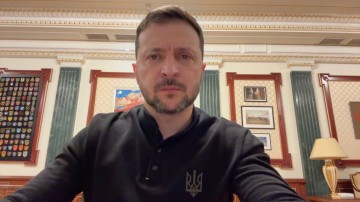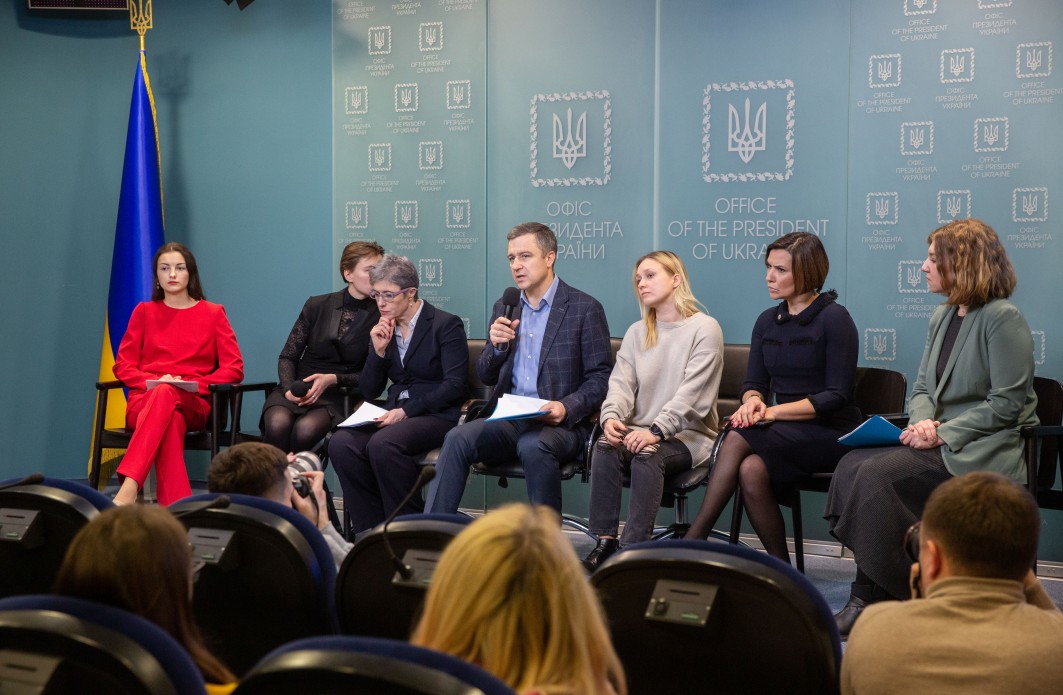On Safer Internet Day, Commissioner of the President for Children's Rights Mykola Kuleba announced the launch of social and educational portal stop-sexting.in.ua together with the Ministry of Digital Transformation and the launch of information campaign #не_ведись aimed at explaining modern sexual risks on the Internet to children, parents and teachers.

“The Internet is not only a possibility for the child, but also a risk. These include sexting, grooming, cyberbullying, sexual assault online. Today, virtual reality creates real problems for our children. And we have to protect the children,” the Commissioner of the President for Children's Rights said during a briefing at the Office of the President of Ukraine involving government and public representatives.
Adviser on children's online safety at the office of Vice Prime Minister - Minister for Digital Transformation of Ukraine Anastasiya Dyakova noted that society sometimes erroneously considered Internet crimes unreal and having far less impact on the child than the same crimes committed in real life. “But this is not true. Children who have been sexually abused on the Internet are even more traumatized than those who have been physically abused,” she said.
The information campaign #не_ведись, which starts on February 11, is part of the #stop_sexting project aimed to tell children, parents and teachers about the protection from these modern threats.

Due to collaboration with the Internet Watch Foundation, a button will also be placed on the stop_sexting website to report about the materials depicting child sexual abuse.
In addition, the Commissioner for Children's Rights, together with the Ministry of Digital Transformation and with the participation of children, have developed a Safe Internet Strategy.
Chairman of the National Children and Youth Council Yelyzaveta Yakniunas noted that during the development of the document one of the central ideas was the participation of the young generation in the adoption of the decisions that affect their lives.
“Children, along with others, have put forward ideas, actively participated in discussions and sometimes tried to persuade adults. And the adults were sincere in their intention to hear the children. It is very valuable to us,” she said.
Deputy Minister of Digital Transformation for European Integration Valeriya Ionan told that in addition to the launch of a special information and educational portal on the protection of children from sexual abuse on the Internet, there were other initiatives planned under the campaign. These include, in particular, the opening of a cyberbullying hotline, psychological support services for victims and parents, specialized courses for adults, children and individual professionals.
"All this as a whole will help protect children from the modern threats that are evolving every day," she said.
According to Mykola Kuleba, more than 3,000 people distribute pornographic material depicting the sexual exploitation of children in Ukraine on a daily basis. He drew attention to the loopholes in the law that make it impossible to prosecute those involved in such crimes.

“There is no responsibility in the national law for the storage of pornographic material depicting the sexual exploitation of children. We should not only ensure punishment, but also make every effort to make the Internet safe for the child,” Mykola Kuleba said.
CEO of the Internet Watch Foundation Susie Hargreaves OBE noted the global character of the fight against the distribution of child sexual abuse content online.
"The more we can do to ensure that people have a safe place to anonymously notify us of such content, the more likely such content can be found and removed," Susie Hargreaves OBE emphasized.




